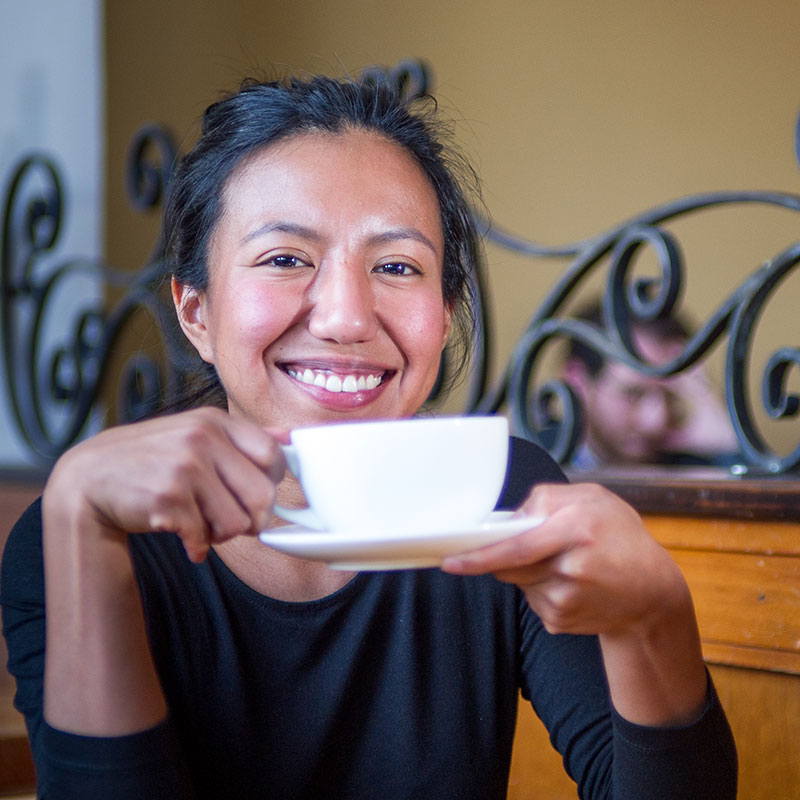
Yesenia Gallardo is a Yale-graduated, sharp business woman, entrepreneur, and first generation Latina, born in Los Angeles to Mexican and Ecuadorian parents.
Her passions are for business, social and environmental activism, and food. Driven and ambitious, Yesenia had everything going on for her after finishing school, including a business partner and a great idea.
Her multicultural background, culinary enthusiasm andexpertise in business came together in collaboration with Kenny Cloft in the summer of 2015, when they founded Poda Foods. The project took her from Connecticut to a warehouse in Molalla, Oregon, where they planned to sustainably farm crickets to create a flour-like protein powder.
Cricket flour has largely been overlooked in Western cooking but is starting to grow in popularity for use in a diverse pool of novelty recipes and protein bars. Many articles in popular travel journals, magazines, and newspapers have created both hype and opportunity.
It was a daring, brilliant business model that earned the partners the 2014 Sobotka Seed Stage Grant, the 2015 Sabin Sustainable Venture Prize, a spot in the 2015 Startup PDX Challenge, and Portland’s 2016 PitchFestNW, providing funding to start the farm. Poda Foods seemed unstoppable.
Then reality struck. They encountered the difficulties of Portland’s rapid increase in industrial leases and a steep learning curve on cricket farming, and tragedy in Kenny’s family recalled him to the East Coast. By summer 2017 the project had distributed lots of samples but failed to sell a single pound of cricket powder.
“We sucked at farming,” Yesenia says. With her partner leaving and the need to relocate the farm, they decided to close before they got in deeper. “I couldn’t do it on my own. The plan was very good; we could have totally made it; the question was if we were the right people for it, and the answer didn’t seem to be yes.” Yesenia holds her head high; the experience taught her a lot.
Today she works part time, volunteers, and is planning her next venture. Her philosophy is to create change by building profitable business models that advance both the community and environment and make education critical. “We don’t have the Mark Zuckerbergs or the Warren Buffetts in the Latino world. We need access to the language of business to feel entitled to dream big.” in her opinion, the next iteration of Latino entrepreneurs have to think bigger and move beyond the non-profit to a full profit mindset, while remaining true to the triple bottom line.
PODA Foods’ closure and the feeling of having disappointed all those who had believed in her left Yesenia a bit ego-bruised. But she sees it as just a setback. “I failed, and that‘s alright,” she says. Her eyes are still set on the food industry and building a sustainable and socially responsible business. She is very confident in her plans and her ability to find the resources to achieve them.
